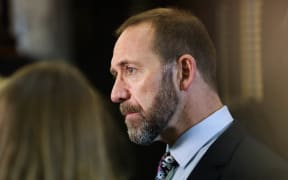The evolved mandate to move the Ngāpuhi treaty settlement forward has failed to be voted through by the iwi.

Andrew Little said the vote in favour of the proposal fell well short of what was needed. Photo: Supplied
Treaty Negotiations Minister Andrew Little said 51 percent of Ngāpuhi individuals voted to support the Evolved Mandate Proposal - well short of the 75 percent majority needed.
Despite a number of hui explaining the proposal across the country and in Australia, the voter turnout was only 19.3 percent.
Mr Little said it's not the result he would have liked but he remains committed to reaching a settlement.
"We set a target and we didn't achieve the target. For a mandate to proceed with confidence on both Ngāpuhi and the Crown's side we need a good majority and we haven't achieved that yet,'' he said.
Mr Little accepts some in the iwi are feeling fatigued by the process that has been going on for a decade.
He said the impression he got from the younger generation was that they "just want to get on with it''.
The process over the last 12 months has seen 105 of the 110 hapū meet - that has never happened in the history of all the Crown negotiating, Mr Little said.
The main objection to the proposal is a single commercial settlement controlled by a central negotiating body, which many hapū fear will be dominated by the Ngāpuhi rūnanga leader, Sonny Tau.
The majority of hapū want to negotiate and settle as six districts, which they say represent the iwi's natural groupings.
But Mr Little has ruled out individual hapū settlements because he said that would drag the process out for another 15 years or more.
He said it's not a "sensible thing to do''.
While it would have been nice to head to Waitangi next year with more progress on the settlement underway, Mr Little said he's still happy with where he's got to with a "level of engagement not seen before''.






